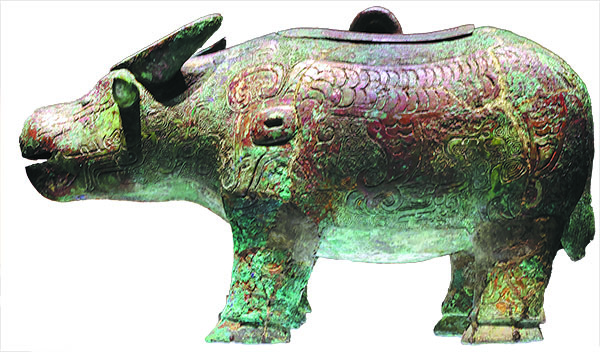

A prince's diaries
For Shang people, divination through oracle bones was an essential part of life, especially before making any major decision or preparing to launch an endeavor. Questions were carved onto the bones, and intense heat was applied to create cracks, which would then be interpreted by diviners or oracles.
The characters etched upon these oracle bones bear the lineage of Chinese civilization. Their evolution would finally form the basis of the written Chinese used by people today.
The most recent major discovery of oracle bones was made at the site in 1991. On that occasion, archaeologists excavated 1,583 animal bones and turtle shells, of which 689 pieces were inscribed. They leave about 2,250 divination records as credible references to Shang society during the reign of Wu Ding, a famous Shang king who ruled around 3,300 years ago.
Apparently, someone with the honorific title Zi had many questions about everyday life, ranging from inquiries about music, dance, archery and hunting to dining and the weather.
One gallery at Yinxu Museum is dedicated to exhibiting this key group of records, which were later found to belong to Wu Ding's son.
"These inscriptions provide a vivid record of Zi's daily activities," says Yu Chenglong, an archaeologist with the Anyang Cultural Heritage Administration who curates the exhibition. "We're reading a prince's diary."
Feeling a bit under the weather, the young prince referred to divination as to whether he should go to school, as one oracle bone reveals.
"It's like a doctor's note, as the noble schools back then had rigid regulations," Yu explains.
Another exhibit shows that Wu Ding once went to school to see Zi's dancing class.
"It's really emotional, like today's parents who go to watch their kids' performances," the curator says." Wu Ding was a king of blood and iron, but such a man known for heroism on battlefield also had his soft side.
"Words carved on bones look cold and stiff," Yu continues. "However, after we wipe off the dust of time, we can feel the warmth of a Shang family. That's the charm of history."
He adds that the exhibits also offer crucial clues to the kinship system, social structures and etiquette of Shang people in general.